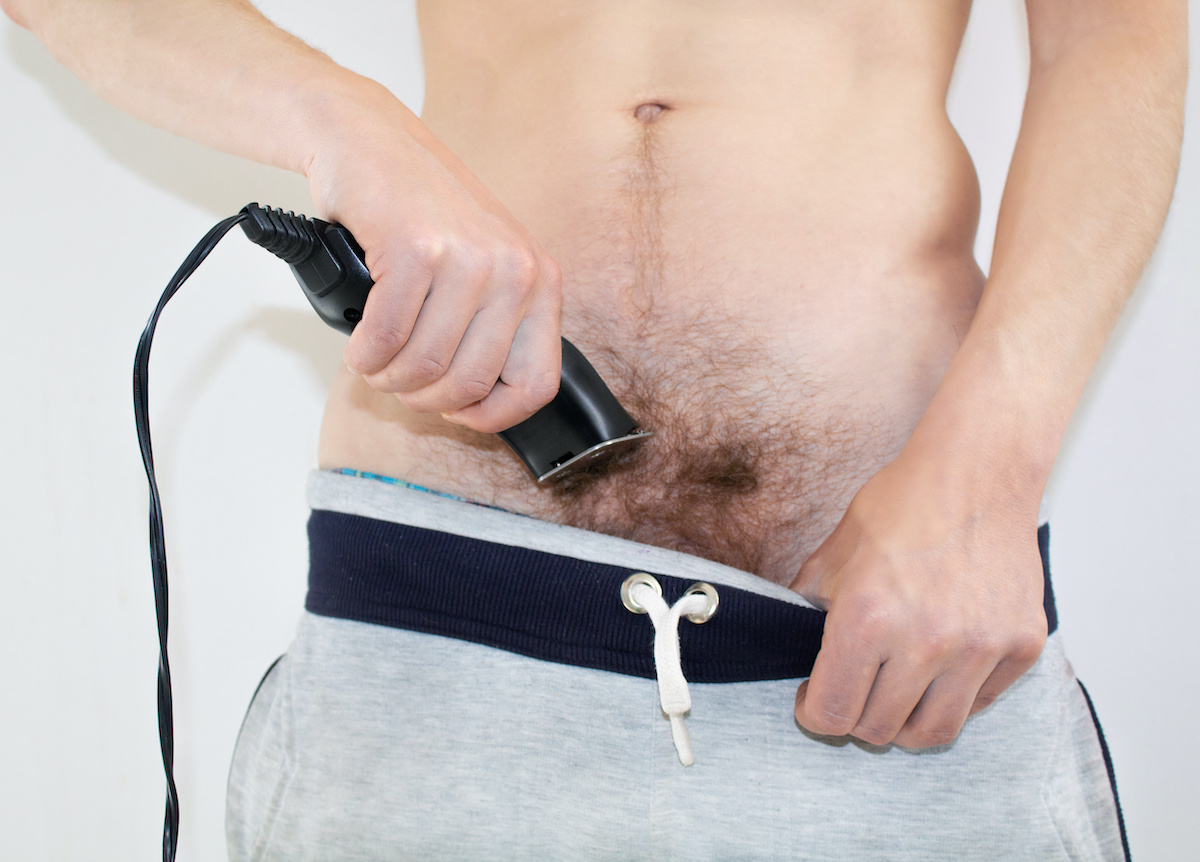Although you probably don’t think of it as one of life’s biggest mysteries, you might wonder why you have pubic hair? We all know that these wiry hairs appear as a sign of sexual maturity, but why do they appear, and are they really necessary? Let’s unpack this pubic hair mystery and the number one thing you should NEVER do to your pubic hairs.
My philosophy has always been that there is nothing on or in the body that does not serve some purpose – even if we have not yet figured it out, including pubic hair. So, why do so many people wax, shave and pluck these hairs away, and do these efforts harm us?
Pubic hair keeps private parts clean
Pubic hair is natural and, in many ways, protective. Although some women believe that shaving their pubic hair is more hygienic, medical research shows the exact opposite. Think of your lovely little bush as a barrier. It reduces contact with dirt, viruses, and bacteria.
Removing pubic hair increases your risk of STI’s
When you stop shaving, waxing, and plucking, not only will you reduce the occurrence of common complications, including yeast infections, but you can also decrease your risk of STIs. Ready for this?
According to a recent study, published in the journal Sexually Transmitted Infections, those who frequently remove their pubic hair actually experience an 80 percent higher risk of developing an STI. As you would expect, rates of grooming were high among both males and females — something which the researchers blame on shifting norms in mainstream media.
The researchers adjusted for both age and the number of sexual partners. They found that those who groomed frequently, as well as those who removed their pubic hair an average of 11 times annually, exhibited a 3.5 to 4-fold increase in STI risk. This includes both human papillomavirus and herpes. Wow right?
Body hair is important for temperature regulation
Body hair, including the hair found around your genitals, helps regulate your body’s temperature. On each hair follicle, there is a sebaceous gland that releases oils. Once these oils reach the skin and evaporate, they are able to cool the area. The same is true when your body doesn’t want to lose heat — the hairs will trap warm air.
Pubic hair provides friction protection
Genital skin is delicate and pubic hair offers the perfect barrier, preventing chafing during sexual intercourse. Not only this, but pubic hair collects and transmits our individual pheromones – scent carrying chemical secretions that impact our mood and behavior, and sexuality!
Removing pubic hair can be a dangerous business
If you’re placing a razor anywhere near this delicate area, you instantly increase your risk of injury. Based on a 2012 study, it was found that approximately three percent of emergency room visits are related to either urinary or genital injuries, which are a direct result of grooming practices gone wrong. Of these injuries, 83 percent were associated with shaving razors.
While looking back on related incidents, it was found that genital injuries have increased by five times over the past decade due to grooming accidents. Between the years 2002 and 2010, hair grooming injuries increased by 247 incidents each year. To put that into perspective, by the year 2010, there were 2,500 incidents annually.
As mentioned, razors are largely to blame. The most common injury was a laceration at 36.6 percent of cases. What’s even more interesting is that it was fairly even between females and males. Only 56.7 percent of injuries were women, and they commonly injured the external female genitalia.
Removing pubic hair increases your risk of painful abscesses
Often starting as ingrown hair, shaving increases your risk of abscesses — swollen body tissue that accumulates pus. Meaning, when you remove your pubic hair, you increase your risk of swelling, inflammation, and infection. As you manipulate your genital hair, you increase the possibility that bacteria will enter the body through your hair follicles.
Once this occurs, individuals will often seek medical attention. Doctors will then give them antibiotics. As we know, excessive antibiotic use not only leads to resistance but will also wipe out all of your body’s good bacteria — which is associated with positive gut health and overall well-being.
Removing pubic hair is an expensive venture
After surveying American women, researchers found that they spend more than $10,000 on hair removal products and services throughout their lifetime.
Yes, that’s right — thousands of dollars to remove something that’s supposed to be there. Considering these women removed unwanted body hair for an average of 53.6 years of their life, a woman will spend more than 58.4 days removing hair from her body.
While focusing specifically on waxing, the lifetime price tag skyrockets to $23,000 — ouch. Sure, shaving is cheaper, but when addressing the hairs in this area, you’ll want to pass on the cheap, low-quality razors. Also, just because you choose the cheaper option, shaving will still remove this natural defense system and increase your risk of injury.
Don’t remove it all
If you are uncomfortable with the amount of pubic hair on your genital area, consider a trim as opposed to full removal. Wash your hair with warm water and soap and rinse well. Pat dry and use clean and sharp scissors to trim away a little bit of hair. Don’t cut it too short though or you will risk ingrown hairs and infection! Most of all – don’t let social norms push you around – pubic hair has a purpose -wear it proudly.
-The WellDaily Team







